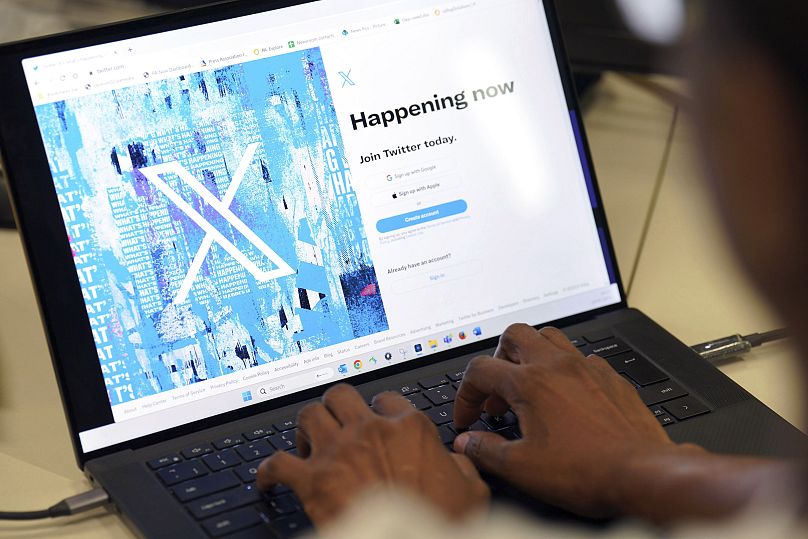While many companies have freshened up their brands in recent years, Elon Musk’s rebranding of Twitter has been mocked and criticised on social media, with analysts suggesting the billionaire just shot himself in the foot.
Elon Musk wants to get rid of Twitter’s little blue bird, the instantly recognisable symbol of the social media platform, replacing it with a single “X” which will also become the new name of the app.
The controversial billionaire is hardly the first business leader to decide his company needs a makeover. In 2021, social media giant Facebook morphed into Meta, a new identity that reflected owner Mark Zuckerberg’s ambitions for the metaverse (a project which has since been called a flop).
Apple has drastically changed its logo in the decades of its existence, going from a rainbow-coloured pome in the 1970s to the sleek, minimal silver fruit on today’s laptops and smartphones.
Corporate rebranding has actually been on the rise since the COVID-19 pandemic, with an UpCity report published earlier this year saying that 51% of businesses in the US changed their branding since the beginning of the global health emergency, as the disruption caused by the virus led to a rethinking of their values and business models.
Why do companies rebrand themselves?
Rebranding is a must for small companies who are trying to break out into the big market, Peter Marshall, marketing director of Add People, told Euronews.
“You may realise that your business name doesn’t reflect your offering or your service may change significantly in your first few years of operation,” he said.
“In these cases, refreshing your name and brand will help you communicate with new and existing customers.”
It’s also a must for companies who want to advance their business to a new level, he said, “for example, if you’re going from local to national or if you’re planning on franchising, these are events that might call for a rethink of your brand.”
There are companies that choose to rebrand themselves after a merger so as to avoid one becoming more important than the other, like in the case of ExxonMobil (born out of the combination of Exxon and Mobil).
There are others who do so to avoid a PR crisis, like when British Petroleum (BP) rather ineffectively spent $211 million to rename itself “Beyond Petroleum” after the Deepwater Horizon crude oil spill in the Mexico Gulf, but nobody forgot the environmental disaster they were part of.
In the case of Twitter, the rebranding of the app into X is a clear sign of the different direction that Musk wants to give to the social media platform, which he acquired nine months ago.
“I think Musk is gambling on the hunch that people value the platform more for the quality and relevance of the discourse that takes place there, rather than an emotional connection to the brand,” Nick Bailey, branding expert, CEO and co-chief strategist at futurefactor, told Euronews.
“It’s an aggressively definitive break from the past and the values and vision of the founders and the platform's earlier years. It’s also a bold FU to Zuckerberg, whose new Threads feels like a throwback to the broken dream of the Internet as a ‘friendly’ place,” he added.
“If his bet goes his way, he’ll be able to say he’s proved the people he derides as naive idealists wrong – that actually ‘radical free speech’ (hate speech included) is what people really want, not cuddly brands they feel good about.”
Will Musk’s rebranding succeed - or fail?
“Rebranding any business comes with risks, but rebranding a household name is a major challenge,” Marshall said, referring to the major failure of the UK’s Royal Mail attempting to rebrand itself as “Consignia” in 2001 only to backtrack a year and a half later.
“If you have an existing customer base, changing up your brand can disrupt their engagement with your business,” he said. “A shift in brand can also result in a loss of brand recognition, as could be the case for ‘X’ as it struggles to shed the brand recognition Twitter has built up over the past 17 years.”
Marcus Collins, who ran social media for Beyoncé for over a decade and is now a professor at the Ross School of Business in the US state of Michigan told Euronews that the Twitter rebranding won’t “change the downward trajectory” the app has taken since the Musk acquisition.
“Superfluous name and logo changes are more deflections than they are rebranding. Why? Because branding is about meaning,” he said.
“X will still be perceived as Twitter, just with a new name, not unlike Meta and Facebook—it’s the same thing,” he added. “Changing the brand's name from Facebook to Meta didn’t change the way we perceived Facebook or the meaning we associated to it. [...] Musk is going to have to do more than a name change to change that, I’m afraid.”
Bailey thinks Musk has made a crucial mistake by abandoning Twitter’s blue bird and yearslong identity.
“Is Elon shooting himself in the foot? Well, he’s shooting something,” he said. “Whether it’s his own foot or someone else’s vital organs remains to be seen.”
But Musk has proven analysts wrong before, Bailey said, and should not be underestimated.
“There were plenty of people who confidently predicted Tesla’s demise and argued it could never compete with established auto-makers, and yet this year its production figures have beaten forecast,” he said.
“Musk can afford to play the long game, and while these decisions come over as slapdash and poorly considered, it’s naive to assume there’s no calculation there.”












